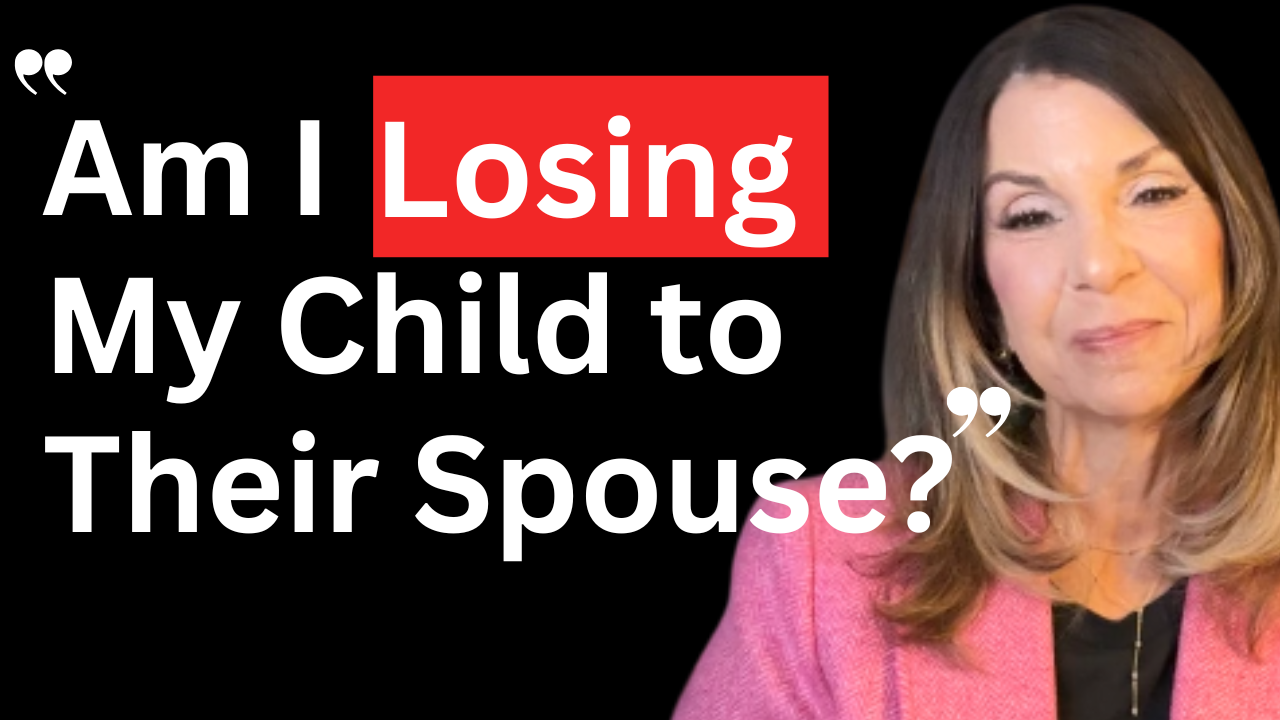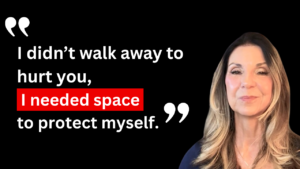It can happen suddenly or slowly over time. One day, you feel close to your adult child, sharing everyday moments, inside jokes, and family traditions. The next, you’re left out of plans, ignored during holidays, or treated like an outsider. You start to wonder: What changed? In many cases, the shift begins when an adult child chooses spouse over parent, leaving the parent feeling confused, hurt, and unsure of their place in the family.
For many parents, this shift begins after their child enters a serious romantic relationship or gets married. You may feel pushed aside, dismissed, or even blamed as a parent. And when it seems like your child’s spouse or partner is driving the distance between you, the emotional toll is enormous. You’re left with unanswered texts, awkward interactions, and sometimes complete silence.
If you’re dealing with estrangement from an adult child because of a new relationship, you’re not alone, and you’re not imagining the pain you’re feeling. What you’re going through has a name, and it’s more common than most people realize.
Let’s break down why this happens, how it affects your identity and mental health, and what you can do to support yourself during this deeply personal season of grief and uncertainty.
Why the Shift Happens After Marriage
When your adult child chooses their spouse over you, it often signals a realignment of priorities that happens in most families, but for some, the shift feels more like a cutoff than a natural evolution.
From a psychological perspective, forming a primary bond with a partner is expected and healthy. However, this new bond can stir up old wounds or unresolved issues from the parent-child relationship, especially if boundaries aren’t always apparent or emotional closeness is heavily emphasized in the family.
Research in family systems theory shows that:
- Adult children tend to emotionally align with their spouses, especially when there is a perceived tension between a parent and a partner.
- Unhealed childhood trauma, past emotional wounds, or insecure attachment styles may reemerge during transitions like marriage or moving in with a partner.
- A dominant or emotionally manipulative in-law can play a significant role in creating distance between parent and child, even if unintentionally.
- When put in a position to “choose,” adult children often side with their partner—not always out of rejection, but out of loyalty, fear, or emotional survival.
When your child chooses their partner over you, it doesn’t always mean they’ve stopped loving you. It may mean they feel stuck in the middle. And when pressure builds, silence can seem like the easiest way out, even if it causes more pain in the long run.
When the In-Law Is Driving the Wedge
For many parents, the most painful dynamic is feeling replaced, not just emotionally but practically. This often shows up as:
- Feeling like your daughter-in-law doesn’t like you or seeing her discourage your child from calling, visiting, or inviting you to events.
- Suspecting your son-in-law comes between you and your child, perhaps by subtly criticizing you or creating uncomfortable rules around visits.
- Hearing that you’re “too much,” “too involved,” or “manipulative”: labels that don’t reflect your intentions but serve to justify the distance.
These are all examples of what some families experience as toxic in-law relationships, though the word “toxic” can be tricky. Sometimes, it’s not outright hostility but a slow erosion of closeness and shared trust.
What’s important to remember:
- You’re not crazy for noticing the change. If it feels like your adult child is distancing themselves in a new or sharp way, your gut may be picking up on something real.
- Trying harder isn’t always the answer. Repeated calls, texts, or requests for clarity can sometimes worsen things—especially if the partner sees you as a threat.
- This is a form of grief. You’re not just losing access to your child—you may also be losing your role, traditions, and imagined future as a family.
The Grief of Being Emotionally Cut Off
Parent grief after marriage is one of the most under-recognized types of grief. It doesn’t come with casseroles, cards, or condolences—but it can shake you to your core. You’re grieving someone who’s still alive, still living their life, yet unreachable to you.
Whether your adult child is ghosting you completely or just pulling away quietly, the loss feels disorienting. For some, it comes with deep feelings of shame, confusion, and isolation.
You might ask:
- Why am I being treated this way?
- Did I do something wrong?
- Why does my child defend their partner but shut me out?
- Am I being erased from my own family?
These are the questions many parents silently carry. You’re not weak or overly sensitive for asking them. This is an emotional cutoff in families, and it’s painful and disorienting.
Coping With the Pain Without Losing Yourself
You don’t have to pretend this isn’t affecting you. You also don’t have to act out of desperation, guilt, or anger. Here are four ways to protect your peace and cope with family estrangement when your heart is breaking:
1. Set Emotional Boundaries
You don’t owe everyone an explanation. It’s okay to say, “We’re giving them space right now,” or “We’re working through something privately.” Protect your energy.
2. Don’t Let Bitterness Take Over
You have every right to be upset. However, feeling replaced as a parent can lead to long-term resentment if not acknowledged and processed. Give yourself room to do so, but please remember and feel, but don’t let those feelings define you.
3. Stay Rooted in Who You Are
You can still be a loving, wise parent, even from a distance. You can grieve and still hold space for hope. Stepping back doesn’t mean you’ve given up; you’re choosing dignity over chaos.
4. Find Support That Doesn’t Shame You
Not everyone understands what it’s like when your child won’t talk to you anymore. Make sure the support you seek doesn’t blame or minimize your pain. Choose professionals, communities, or coaches who honor your story.
When Reconnection Feels Out of Reach
Sometimes, the hardest part is not knowing if the door will reopen. When your child chooses their spouse and shuts you out, it can feel like your voice, your role, and your love no longer matter. However, relationships are not always static. People change. Time passes. Circumstances shift.
In the meantime, it’s okay to focus on your well-being—not as a way of giving up, but as a way of staying grounded in love and self-respect.
You Deserve Support
If this experience has left you feeling alone, confused, or ashamed, I created a video just for you:
“What to Do When Your In-Law Breaks Your Family Apart”
It’s honest. It’s research-based. And it speaks directly to the grief many parents silently carry.
Please take a moment to watch, and if it resonates, share your thoughts in the comments. Healing is easier when we feel seen and less alone.
Need More Support?
If you’re ready for personalized guidance, I offer one-on-one coaching for parents navigating family estrangement, emotional cutoff, and the heartbreaking shifts that can happen after marriage.
Whether reconciliation happens or not, you deserve tools to help you:
- Set healthy emotional boundaries
- Understand your child’s behavior without blaming yourself
- Cope with grief in a healthy way
- Reconnect with your identity beyond the parent role
You’re not a bad parent, you’re not a failure. You’re human, and you’re doing your best with a heart that never wanted this outcome.









